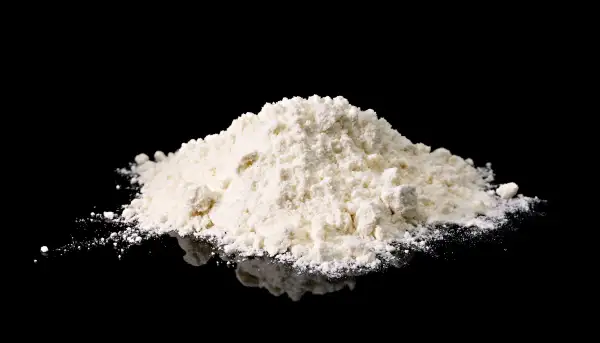You'll Be Able to Get Drunk on Powdered Alcohol Soon

A controversial powdered alcohol called Palcohol made a splash in the news last spring, when word spread—prematurely, as it now turns out—that the Alcohol and Tobacco Tax and Trade Bureau (TTB) had approved the product for sale. The TTB quickly stated that it issued approval in error, and that Palcohol was not approved.
This week, though, Lipsmark, the company that owns Palcohol, said that it has officially gotten the OK. Palcohol "is now legal to be sold in the United States. We will be working on getting the production facility up and running. It will take a while but hopefully it will be available this summer," a company announcement stated.
According to the Associated Press, the four Palcohol products that have been approved for sale by federal agencies are powdered, just-add-water versions of a cosmopolitan and a margarita (dubbed the "Powderita"), as well as plain old vodka and rum. A Lemon Drop powder is supposed to be approved soon as well.
Palcohol's FAQ page explains that the powder, "when used as directed, by adding six ounces of liquid to it, is equal to a standard mixed drink." The page also points out that Palcohol is gluten free, and that each bag of powder is about 80 calories.
The plan is to market Palcohol to travelers and outdoors enthusiasts, among other groups who might like the idea of having some on-the-go booze without dealing with heavy and bulky bottles full of liquid. Palcohol might also be added to foods in order to make "adult" versions of, say, ice cream. But the secret ingredient doesn't change the taste. "When you add Palcohol to food, you're not really adding flavor to the dish, just alcohol," the Palcohol site states.
That special quality, however, has prompted some into thinking powdered alcohol should be banned outright. Just this week, on the same day Palcohol announced that it had gotten federal approval, a state senator in Pennsylvania pushed to make powdered alcohol illegal in the state, partially due to fears that it's easy to hide and consume and could be sprinkled onto food, increasing the odds that it would be abused by kids. Colorado, New York, and Ohio are among the other states that have taken steps to ban Palcohol before it is even approved for sale.
Palcohol claims that states are taking preemptive strikes against it "because the liquor industry is against it and they want to squash competition and protect their market share. The liquor companies have lots of money to lobby for what they want and we are no match for their deep pockets."
The makers of Palcohol say that banning it will create a black market, perhaps making it even easier for underage kids to buy some. They also point out that there are many misconceptions about the product. For instance, tempting as it might seem, snorting powdered alcohol is not worth the trouble: "It's painful to snort due to the alcohol," the FAQ explains. "Second, it's impractical. It takes approximately 60 minutes to snort the equivalent of one shot of vodka. Why would anyone do that when they can do a shot of liquid vodka in two seconds?"
Why indeed.
